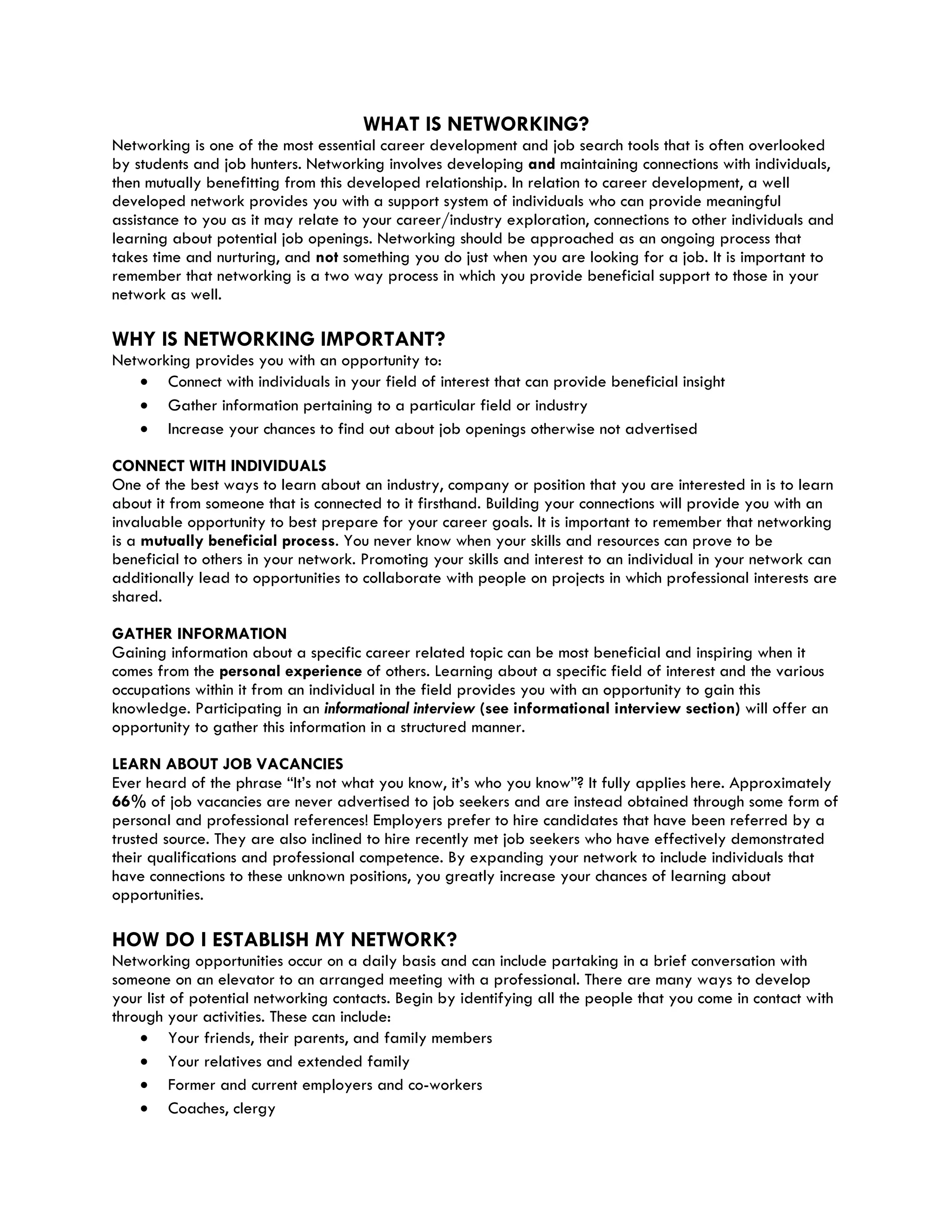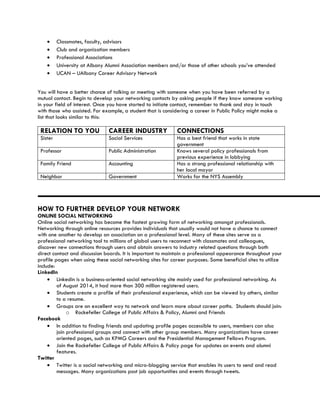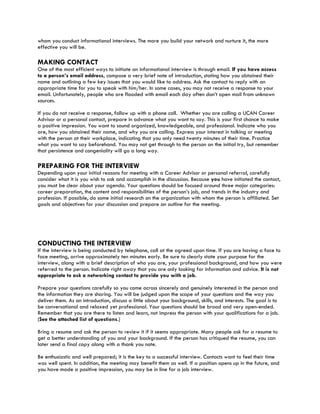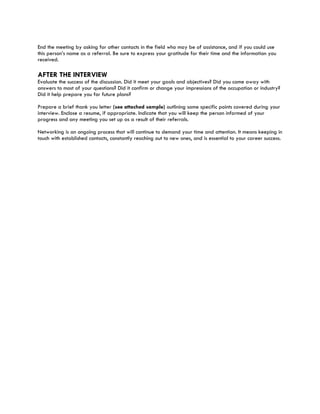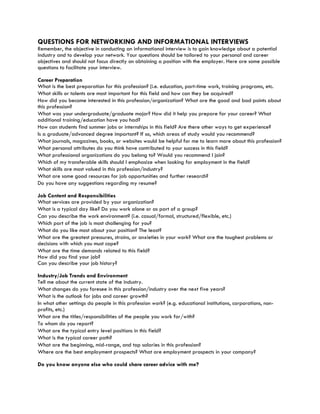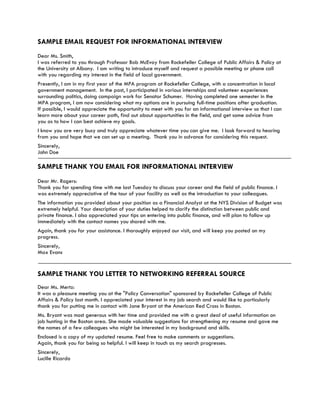Networking is a critical tool for career development and job searching, enabling individuals to form mutually beneficial relationships that can lead to job opportunities and valuable industry insights. It should be viewed as an ongoing process rather than just a method for job hunting, involving both in-person and online interactions, including informational interviews and the use of platforms like LinkedIn. Effective networking enhances the chances of discovering unadvertised job vacancies and fosters a supportive community within one's field of interest.
